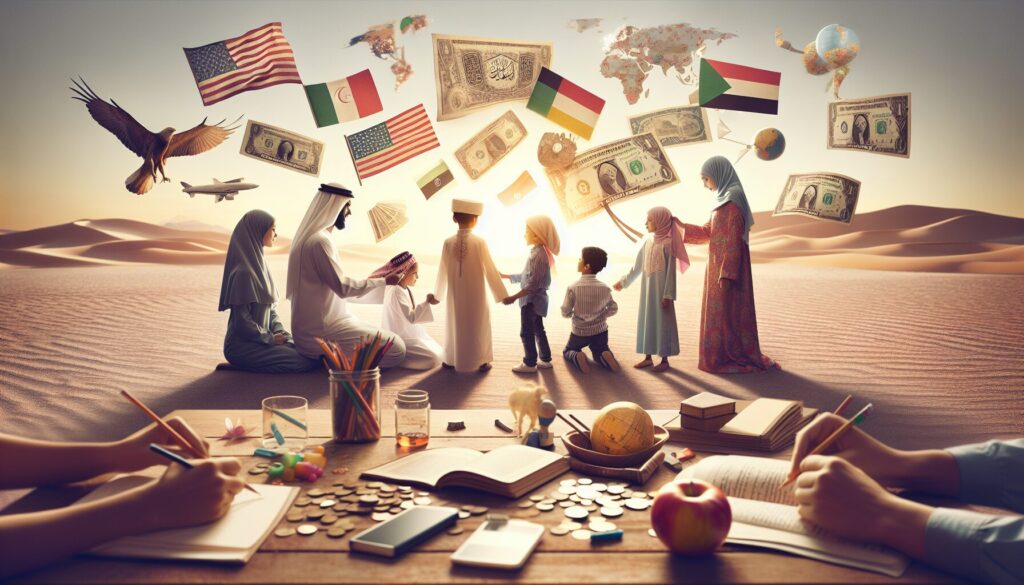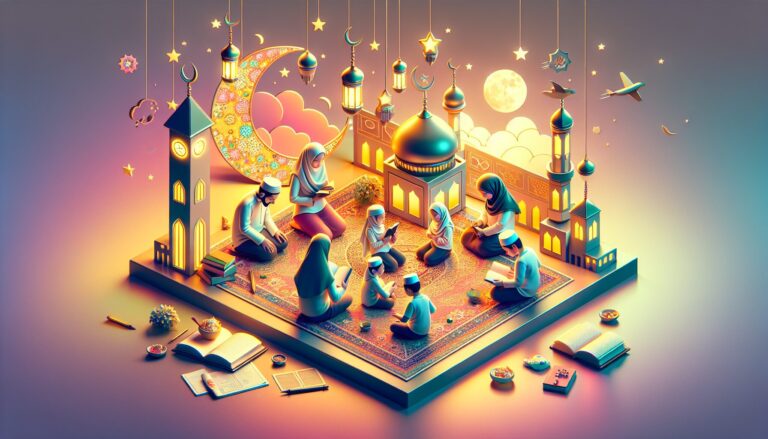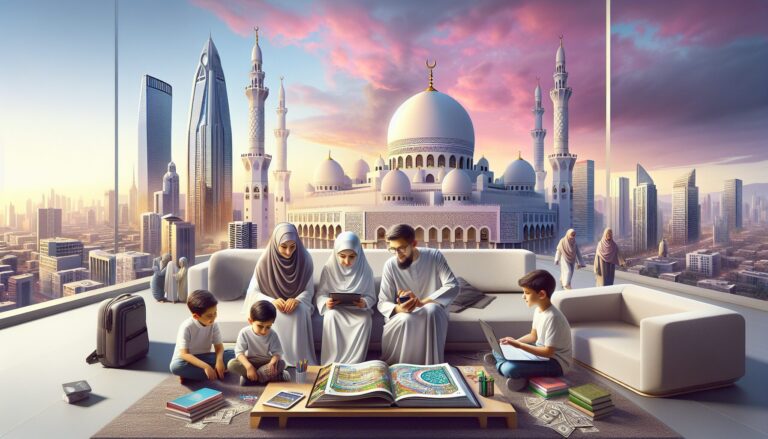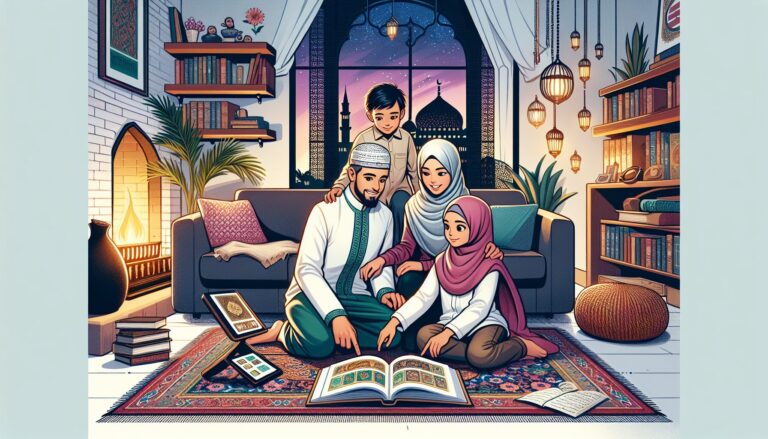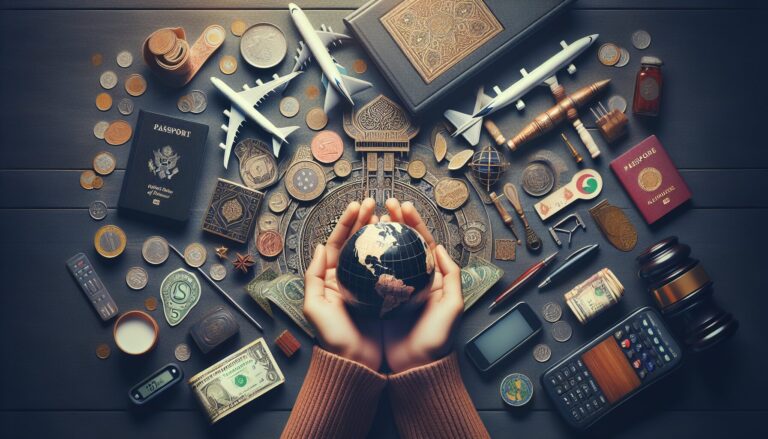Growing up in the multicultural tapestry of Canada, many of my best friends came from different backgrounds. I have such fond memories of sharing our cultures and beliefs over lunch, learning how beautifully Islamic and Western values can enrich one another. I see this same vibrant energy in Australia, which has its own unique and fascinating mix of cultures. This leads to an important conversation about how Islamic and Western values can not only coexist but find harmony, offering unique perspectives on life, community, and personal beliefs..
⚠️ Cultural Sensitivity Note
This article discusses sensitive cultural and religious topics that may evoke strong personal beliefs and emotions. Readers are encouraged to approach the content with an open mind and respect for diverse perspectives, while being mindful of potential biases and interpretations.
Historical Context and Evolution
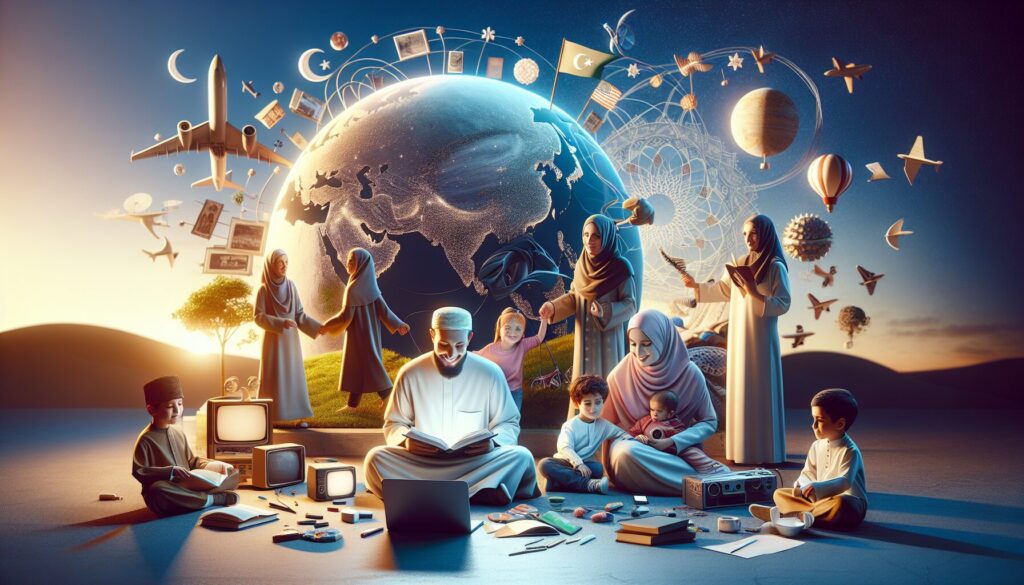
The interaction between Islamic and Western values has been a dynamic journey through history, full of fascinating twists and turns. Picture the bustling streets of ancient trade hubs like Baghdad and Cordoba, where scholars, merchants, and travelers exchanged not just goods, but ideas and philosophies. These cities were more than just centers of commerce; they were melting pots of culture where diverse values mingled and evolved. This historical backdrop is crucial to understanding how these value systems have influenced and shaped each other over the centuries.
Back in the medieval period, the Islamic Golden Age was a vibrant era of scientific, mathematical, and philosophical advancements. Scholars from this period, like Al-Khwarizmi, whose work laid the foundations for algebra, shared knowledge that spread far and wide, reaching Western Europe through translations. This exchange was pivotal in sparking the European Renaissance, a time of renewed interest in science and the arts. It’s fascinating to see how the flow of knowledge during these periods laid the groundwork for a shared intellectual heritage.
Key Interactions and Influences
Throughout history, there have been key moments where Islamic and Western values intersected and left lasting impacts. For instance, during the Crusades, despite the conflict, there were exchanges of ideas and technologies that enriched both cultures. The architectural marvels of the time, like the intricate designs of the Alhambra Palace, showcase a blend of Islamic artistry with Western influences.
In more recent history, the colonial period brought about a different kind of interaction. Western powers expanded into regions where Islamic values were predominant, leading to a complex interplay of adaptation and resistance. This period was marked by significant cultural and political shifts that have had lasting effects on global relations. The impact of colonialism is still felt today, influencing how these values are perceived and practiced across the world.
As we moved into the 20th century, globalization emerged as a powerful force, further intertwining these value systems. The rise of global communication and travel created new opportunities for cultural exchange. Here in Australia, for instance, the multicultural landscape is a testament to how diverse values can coexist and enrich one another. Institutions like The Islamic Council of Victoria and The Australian Multicultural Foundation play pivotal roles in fostering understanding and cooperation between different cultural groups.
Understanding the historical context of Islamic and Western values provides valuable insights into their evolution and ongoing relationship. It’s a complex tapestry of influence, adaptation, and mutual enrichment that continues to shape our world today.
Core Similarities and Differences
When comparing Islamic and Western values, several core similarities and differences emerge. These values shape cultures, societies, and individual lives in profound ways. Let’s dive right in and explore these fascinating aspects!
Core Similarities
One of the most striking similarities lies in the emphasis on ethical living. Both value systems cherish principles such as honesty, compassion, and the importance of family. These shared values often become the foundation for mutual respect and cooperation between communities. For instance, in Australia, you might find families from diverse backgrounds coming together to celebrate festivals and share meals, emphasizing kindness and community. This sense of togetherness is beautifully exemplified by organizations like the Islamic Council of Victoria, which often facilitates interfaith dialogues and events.
Moreover, both Islamic and Western cultures value education and knowledge. The legacy of scholars like Al-Khwarizmi in the Islamic world and Western philosophers highlights a mutual appreciation for learning. Additionally, the majestic Alhambra Palace stands as a testament to the rich history of knowledge and cultural exchange.
Core Differences
Differences, however, also play a significant role in shaping these values. One notable difference is the approach to individualism versus collectivism. Western values often emphasize individual rights and freedoms, highlighting personal achievements and autonomy. In contrast, Islamic values tend to prioritize community well-being and collective responsibility. This distinction can be seen in how communities organize social structures and support systems.
Another key difference lies in secular versus religious worldviews. Western societies often separate religion from public life, focusing on secular governance and policies. Islamic governance, on the other hand, is often intertwined with religious teachings, influencing laws and societal norms. This difference can lead to diverse perspectives on issues such as governance and legal frameworks.
Furthermore, the approach to integrating cultural values into daily family life can vary. Western families might focus on individual development and personal goals, while Islamic families often incorporate religious teachings into everyday conversations. For those interested in exploring how to integrate Islamic values into family life, you might find valuable insights in Mastering Incorporating Islamic Values into Everyday Family Conversations.
Understanding these similarities and differences fosters a deeper appreciation for the rich tapestry of human culture. It encourages us to celebrate diversity while finding common ground in shared values, reinforcing the idea that despite differences, we are all connected in our pursuit of a meaningful and ethical life.
Impact on Society and Culture
Understanding the impact of Islamic and Western values on society and culture can be a fascinating journey through time and space! These values have intricately woven themselves into the fabric of many communities, particularly in vibrant, multicultural places like Australia. The blending of these two sets of values often leads to a unique tapestry of traditions, beliefs, and practices that enrich everyday life.
In Australia, the influence of Islamic and Western values can be seen in various aspects of society. Many Australian cities host diverse communities where these values play a crucial role. The interaction between the two often fosters a spirit of inclusivity and dialogue. For instance, events organized by the Islamic Council of Victoria create platforms for cultural exchange, allowing people from different backgrounds to learn and appreciate each other’s traditions.
Architectural styles in Australia also reflect this blend. Take a stroll through any major city, and you might notice how traditional Western designs harmonize with Islamic-inspired elements. This fusion is reminiscent of the stunning work seen in places like the Alhambra Palace, where intricate Islamic art and architecture coexist with Western influences.
Education and Innovation
Education is another area where Islamic and Western values intersect beautifully. Schools and universities often incorporate teachings that highlight both perspectives, fostering a well-rounded understanding among students. This holistic approach not only broadens minds but also prepares students to navigate a globalized world. Institutions like University of Melbourne strive to offer programs that reflect this duality, encouraging a rich exchange of ideas and knowledge.
In the realm of innovation, the legacy of scholars like Al-Khwarizmi continues to inspire. His contributions to algebra and mathematics are celebrated within Western educational systems, demonstrating how Islamic scholarship has shaped modern academic thought. This ongoing dialogue between the two value systems contributes to advancements in fields like science, technology, and the arts, benefiting society as a whole.
Moreover, community initiatives often reflect the shared values of cooperation and support. Organizations like the Australian Federation of Islamic Councils work alongside local groups to promote social welfare, emphasizing compassion and understanding. Such efforts highlight the positive impact of these intertwined values, fostering a sense of unity and shared purpose among diverse populations.
The interplay between Islamic and Western values in Australia is a testament to the country’s commitment to multiculturalism and inclusivity. By embracing this dynamic relationship, communities continue to thrive, creating a vibrant cultural mosaic where everyone has the opportunity to contribute and grow.
Challenges and Misconceptions
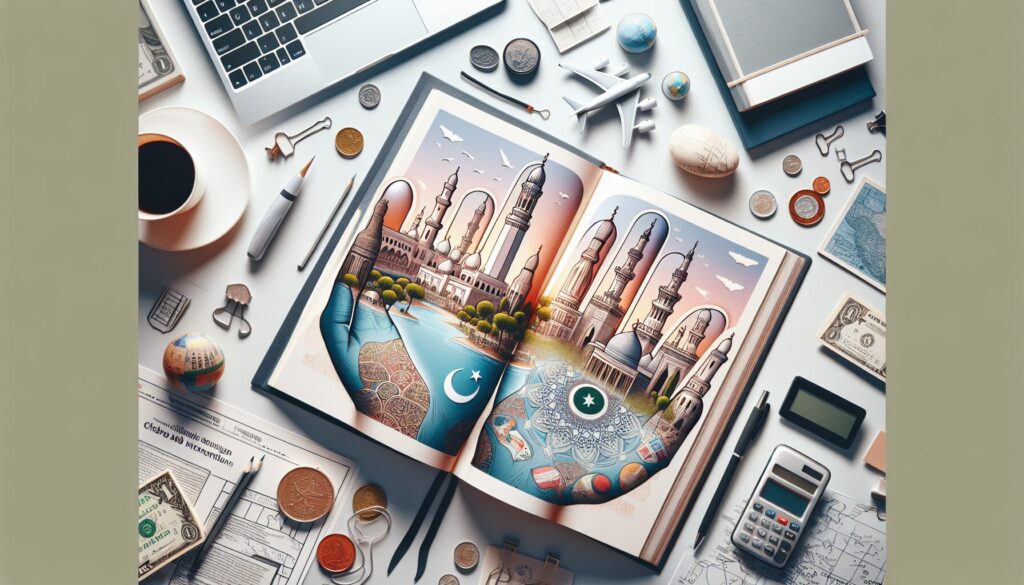
Navigating the relationship between Islamic and Western values often comes with its fair share of challenges and misconceptions. One major hurdle is the tendency for people to oversimplify or stereotype these complex cultural landscapes. This isn’t just an academic issue; it affects real lives and communities here in Australia.
One common misconception is the assumption that Islamic values are inherently incompatible with Western ideals. This perception can create unnecessary tension and often stems from a lack of understanding. For instance, both cultures place a high value on education, justice, and family, even if they express these values differently. However, sensationalist media stories can sometimes amplify differences rather than bridge the gaps with understanding.
It’s crucial to recognize how these misunderstandings can manifest in everyday interactions. For example, in the workplace, assumptions about religious practices can lead to awkward or uncomfortable situations. People may not realize that scheduling meetings during prayer times or overlooking dietary restrictions can create significant barriers for Muslim colleagues. Islamic Council of Victoria provides resources to help bridge these gaps, offering educational programs that promote better understanding.
Another area where misconceptions often arise is in the realm of public policy and law. Some Australians mistakenly believe that Islamic practices conflict with local laws or societal norms. However, the legal frameworks within Australia are designed to accommodate diverse religious beliefs while maintaining social harmony. University of Melbourne often hosts forums and lectures that delve into these legal nuances, offering a platform for informed discussion.
Addressing the Challenges
So, how can we overcome these challenges and misconceptions? Education and open dialogue are key. Here are some ways to foster better understanding:
- Engage with diverse communities: Participating in local cultural events or interfaith dialogues can provide firsthand insights.
- Educate yourself: Utilize resources from organizations like The Islamic Council of Victoria to learn more about Islamic practices and beliefs.
- Promote inclusive policies: Encourage workplaces and public institutions to adopt practices that respect all cultural and religious identities.
By taking these steps, we can create a more inclusive environment that reflects the rich tapestry of both Islamic and Western values. It’s all about respecting differences while celebrating commonalities.
The Role of Intercultural Dialogue
Intercultural dialogue plays a key role in bridging the gap between Islamic and Western values, fostering mutual respect and understanding. In Australia, this dialogue is as vibrant as the diverse communities that call it home. At its heart, it’s about people coming together to share perspectives and experiences, creating a tapestry of shared knowledge and appreciation.
One of the most effective ways to promote this dialogue is through community events and initiatives. These gatherings bring people from different backgrounds together, often around shared interests or causes. For example, local festivals celebrating both Islamic and Western traditions provide a platform for cultural exchange. Attendees can enjoy traditional foods, music, and art, all while learning about the values that underpin these traditions. Organizations like the Islamic Council of Victoria often spearhead such events, creating a welcoming environment for all.
Educational Opportunities
Education is another powerful tool for fostering dialogue. Schools and universities in Australia, such as the University of Melbourne, have been instrumental in introducing programs that encourage students to explore and discuss different cultural perspectives. These programs often include guest lectures, workshops, and exchange programs, allowing students to gain firsthand experience with diverse worldviews. Such initiatives not only broaden students’ horizons but also equip them with the skills needed to engage in meaningful intercultural conversations.
Additionally, public seminars and discussions hosted by cultural institutions and libraries offer the broader community a chance to participate in these conversations. These events often feature speakers from various backgrounds who provide insights into their cultural values and experiences. By doing so, they help demystify and humanize cultures that may seem foreign or misunderstood.
The role of digital platforms can’t be underestimated either. Social media and online forums provide spaces where individuals can connect and share their stories with a global audience. These platforms empower people to challenge stereotypes and engage in open dialogue, breaking down barriers and building bridges of understanding. However, it’s crucial to approach these spaces with an open mind and a willingness to listen, as online conversations can sometimes be fraught with misunderstandings.
Organizations like the Islamic Council of Victoria and educational institutions such as the University of Melbourne play a pivotal role in facilitating these dialogues. By providing platforms for discussion and opportunities for cultural exchange, they help create a society where diverse values can coexist and enrich each other. Through these efforts, the relationship between Islamic and Western values continues to evolve, marked by mutual respect and shared understanding.
Conclusion
In essence, the intricate dance between Islamic and Western values in Australia creates a rich tapestry that celebrates diversity while highlighting the shared human pursuit of ethical living, education, and mutual respect. As these cultural interactions continue to evolve, they offer a powerful testament to the strength found in embracing differences and finding common ground. By fostering open dialogue and understanding, we pave the way for a future where all cultures thrive together in harmony. Here’s to embracing and celebrating our shared humanity!
Continue Exploring
Transform your weekends into a rich tapestry of learning and fun! Dive into our step-by-step guide and unlock the secrets to planning unforgettable Islamic weekends for your kids.
Frequently Asked Questions
How have Islamic and Western values historically influenced each other?
Islamic and Western values have historically influenced each other through various interactions, such as during the Islamic Golden Age, when scholars like Al-Khwarizmi contributed to advancements in science and mathematics that later influenced the European Renaissance. Additionally, the exchange of ideas during the Crusades and the cultural blending in trade hubs like Baghdad and Cordoba further intertwined these value systems.
What are some core similarities between Islamic and Western values?
Both Islamic and Western values emphasize ethical living, with a shared focus on principles such as honesty, compassion, and the importance of family. They also value education and knowledge, as evidenced by the mutual appreciation for scholars and philosophers from both traditions. These shared values often serve as a foundation for mutual respect and cooperation between communities.
How can intercultural dialogue help bridge the gap between Islamic and Western values?
Intercultural dialogue fosters mutual respect and understanding by bringing people from diverse backgrounds together to share perspectives and experiences. It can be promoted through community events, educational programs, and public seminars, which provide platforms for cultural exchange. Digital platforms also play a role by allowing individuals to engage in open dialogue, challenge stereotypes, and build bridges of understanding.
Fatima Ansari is an Islamic educator and writer with over a decade of experience teaching Quran and Islamic studies to children and families in Western Muslim communities. Growing up in North America, she saw firsthand the challenges Muslim families face in balancing faith with modern life, which inspired her to share practical guidance rooted in the Quran and Sunnah. Her mission with E-Quran Learning is to make Islamic education accessible, relatable, and inspiring for Muslim families across the United States, United Kingdom, Canada, Australia, and New Zealand.
